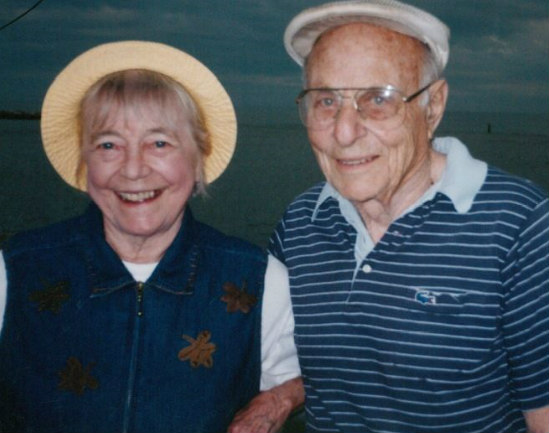Gwendoline Speyer was tenacious. A native of London, England, she began her career as a teacher in the London public schools during World War II. Passionate and dedicated, she held her classes in campus bomb shelters during air raids. The legacy of her commitment lives on through the Joseph and Gwen Speyer Scholarship fund at the University of Missouri-Kansas City.
“She was a character,” says Bill Modrcin, an attorney who managed the estate of Gwen and her husband, Joe Speyer. “They kept a flat in London and Gwen bought a new MG convertible every summer and brought it back to the states.”
But it was her devotion to teaching that endeared Speyer to Modrcin most. After moving to Kansas City following the war, Speyer managed the experimental Laboratory Pre-School at the University of Kansas City (now UMKC.) It was there that she met Joe, a graduate of the Kansas City School of Law. Following her work at the pre-school she taught at the Pre-school for the Blind in Kansas City, Kansas for 15 years.
“She was a special education teacher before there was such a thing,” says Modrcin
It was Gwen’s concern about school readiness for children with disabilities that led her to found the Child World School, which served hundreds of pre-school children over three decades. After closing the school because of funding and staffing issues as students with disabilities began to be integrated into the educational mainstream, Gwen and Joe established the Child World Foundation to fund scholarships for students seeking degrees in special education.
The Speyers’ scholarship is awarded to students with financial need who exhibit a dedication to the field. Recipient Brittany Magers completed her Masters of Arts in Special Education in 2015.
“This scholarship meant so much to me. I was so thankful. It meant a lot that the scholarship is based on who you are as a person and not just based on grades,” says Magers
Magers had worked as a para for four years while she completed her graduate degree in speech pathology. Now she manages 14 students as a para resource teacher in the Liberty School District.
“Some of my students are reading and writing. They have learning disabilities or ADHD or autism. I’m never sure what challenges we’ll be facing,” says Magers, who works with students both individually and in the classroom.
“I know they’re growing, but I can’t put a number on it. But even the smallest success – even with just one student –is totally worth it.”

